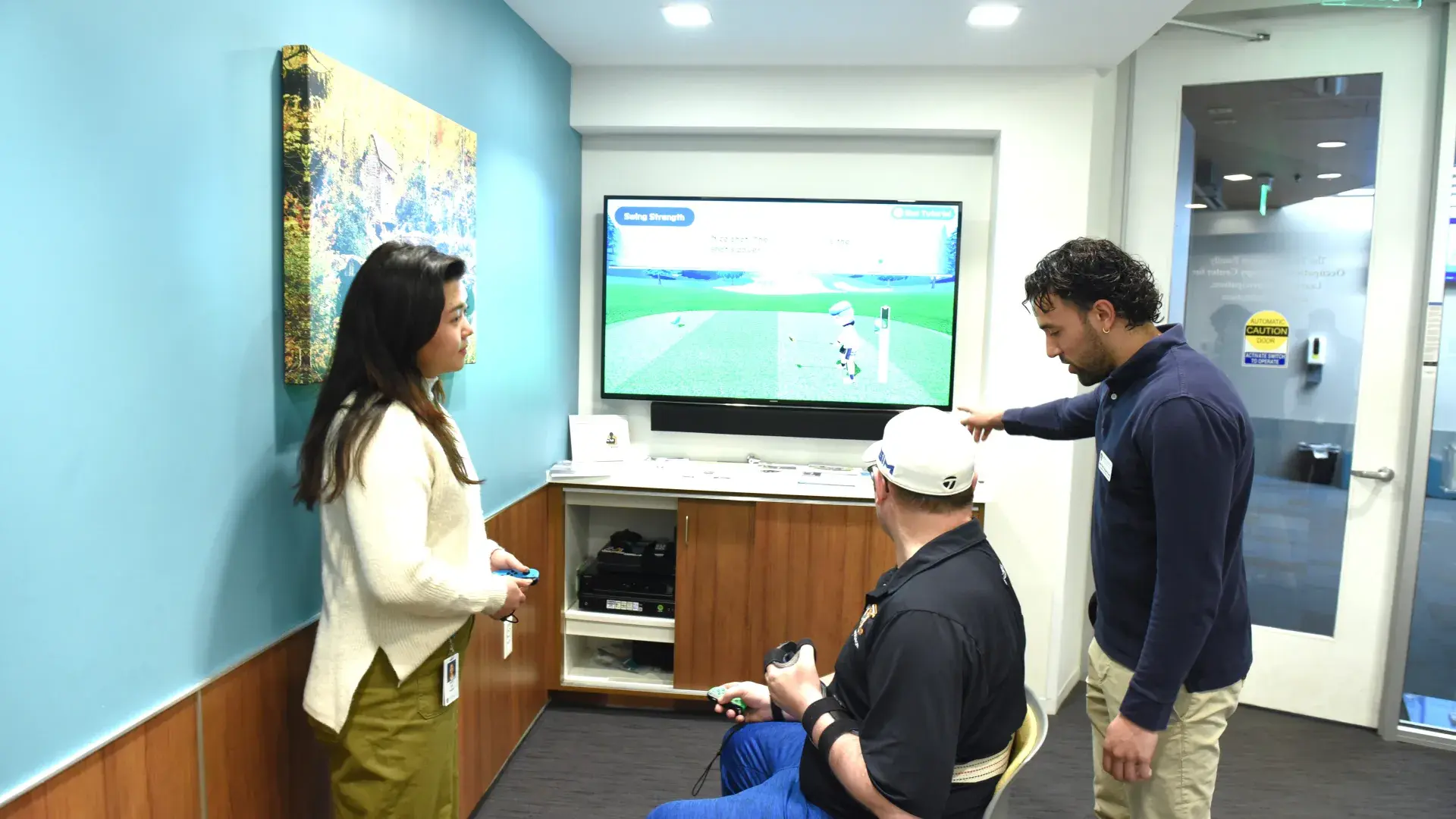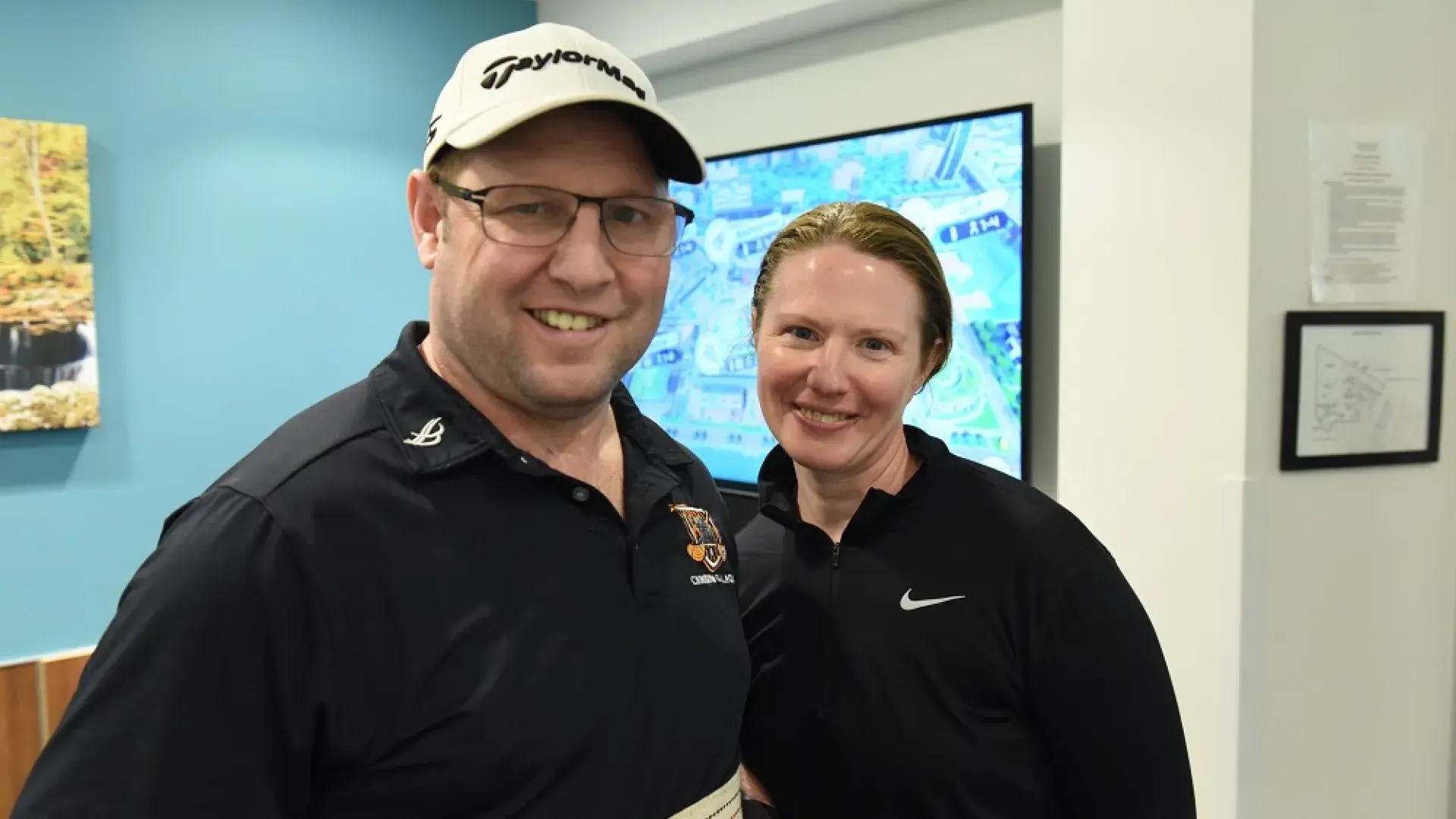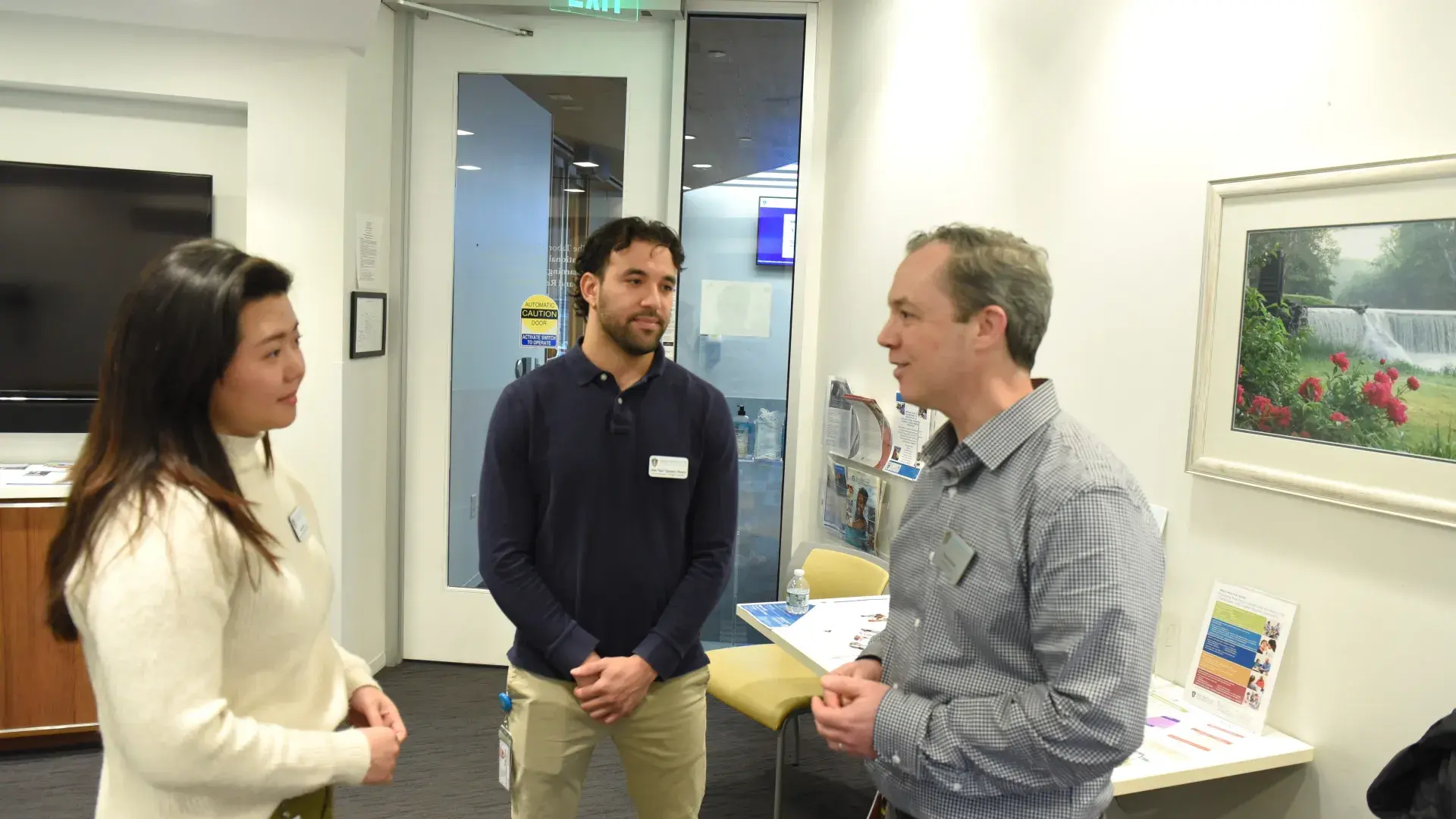
Client who had brain injury returns to the links thanks to adaptive gaming sessions with occupational therapy students
Ciaran Moore has been an avid golfer throughout his life. But a traumatic brain injury he had a few years ago has prevented his return to the links as he has struggled with physical difficulties.
However, that doesn’t mean he still doesn’t golf. It’s just taken on an electronic form at the MGH Institute, where he has been playing a video golf game while working with Doctor of Occupational Therapy students as part of his rehabilitation.
“It’s been fun,” said Moore, a Dorchester resident who’s originally from Ireland, as he sat with second-year students Alice Lee and Jean Paul Vasquez Rivera in the Tabor/Connor Family Occupational Therapy Center for Learning, Participation, and Rehabilitation. This was Moore’s third session with them, and the first in a few months since the previous semester.
The students had little information about Moore’s interests when they first met him. But a golf hat he was wearing spurred a conversation with Moore and his wife, Shauna, and soon they zeroed in on getting Ciaran back in the swing of things.
“When we first did our session, it was a lot of finding the right controller and getting Ciaran comfortable with using it,” said Rivera.
Subsequent sessions have seen a steady, if slow improvement.
“He’s come a long way with his endurance,” noted Lee, as her classmate was helping Moore tee off on the third hole of the video game.


